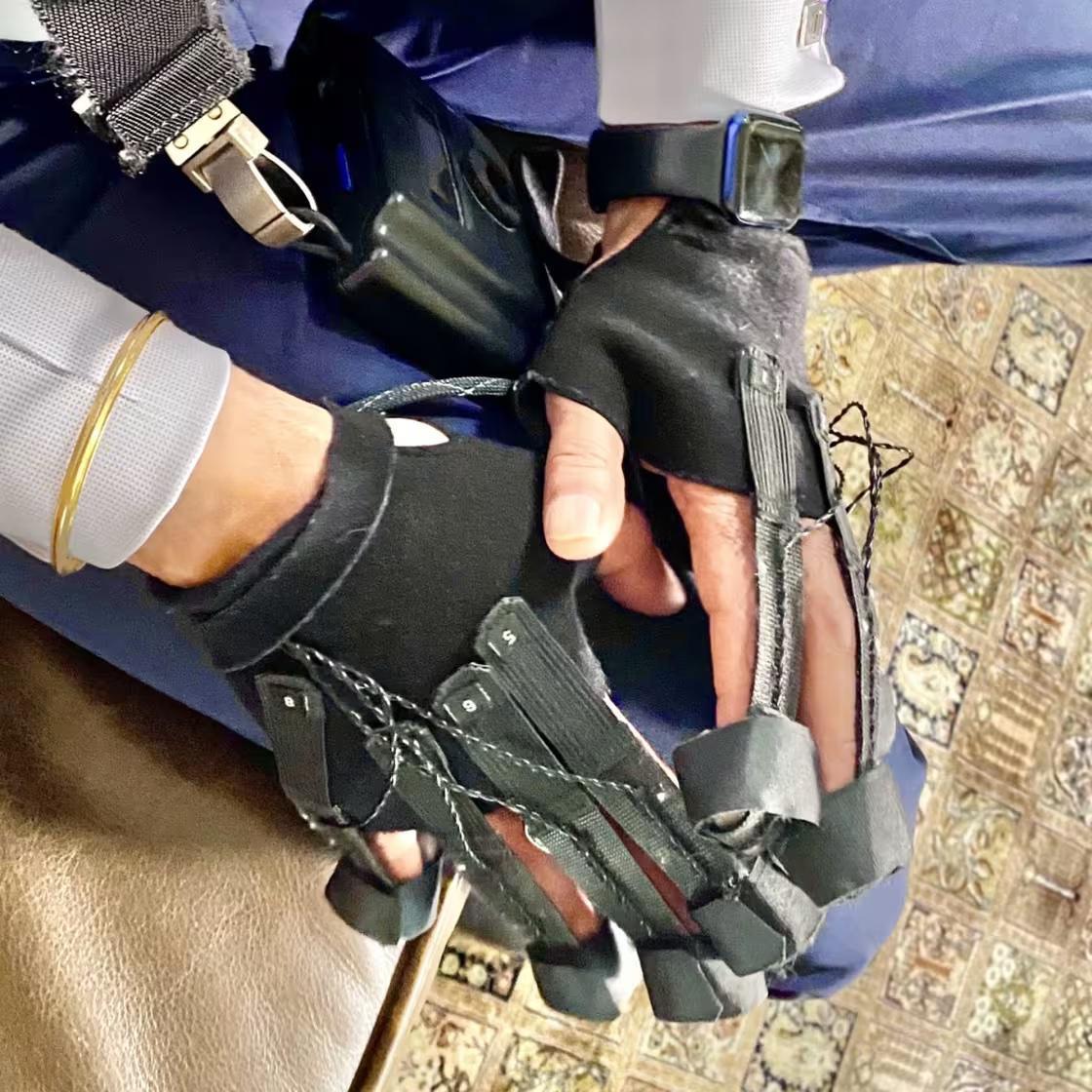By Sarah Jacoby
At 58, Kanwar Bhutani has not only learned to walk again but has conquered the New York City Marathon, thanks to a pioneering treatment involving vibrating gloves. Diagnosed with Parkinson's disease at 39, Bhutani’s condition had progressed to the point where he could hardly take a step unassisted. However, a revolutionary approach developed by Stanford University researchers has given him a new lease on life.
Parkinson's disease, affecting around 500,000 people in the U.S., is a neurological disorder characterized by difficulty controlling movements, leading to symptoms like shaking, stiffness, and balance issues. Despite various treatments available, including medications and surgery, there is no cure for Parkinson's.
The innovative treatment that Bhutani underwent involves gloves that deliver a specific pattern of vibrations, intended to 'reset' misfiring nerves in the brain associated with Parkinson’s. This method is based on an old theory first explored by neurologist Jean-Martin Charcot in the 19th century after observing symptom relief in patients following a bumpy train ride. Dr. Peter Tass, a professor of neurosurgery at Stanford and the developer of the gloves, has refined this concept significantly.
In an interview with NBC News’ Jacob Soboroff on the TODAY show, Bhutani shared that after a single four-hour session with the gloves, he noticed a significant improvement. From initially struggling with basic mobility, Bhutani has since completed several 5K races and even a triathlon. He managed to drastically reduce his medication intake, from 25 different pills to just two.
Dr. Tass and his team have conducted the first round of clinical trials, which included Bhutani among 20 other patients, all of whom reported improvements. The goal, according to Tass, is to develop treatments that are effective yet less aggressive than current options, avoiding heavy medication or invasive surgery.
The results of these trials are promising enough that thousands have applied to participate in upcoming studies, and there is hope that the gloves will receive FDA approval within two years.
For Bhutani, the treatment has been transformative. "I still can't believe to this day that this is really possible," he said. His story is not just about managing a disease but reclaiming a vibrant, active life despite it.
Anyone interested in the trial can reach out to the Tass Lab at Stanford for more information.

